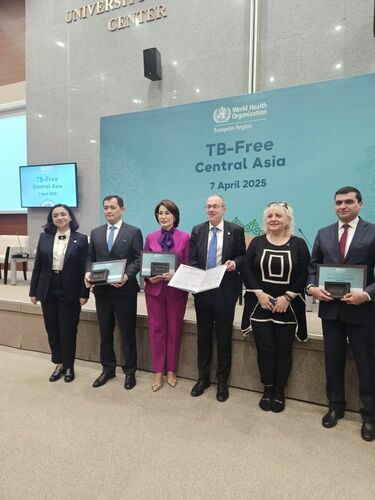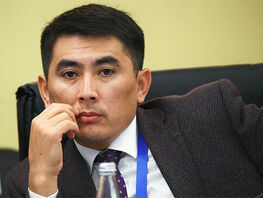Minister of Health of Kyrgyzstan Erkin Checheybaev took part in the launch of the subregional initiative Tuberculosis-Free Central Asia, organized by the WHO Regional Office for Europe in Astana.
The initiative aims to accelerate the elimination of tuberculosis, including drug-resistant forms, by 2030.
According to the press center of the Ministry of Health of the Kyrgyz Republic, during the ceremony in Astana, the Health Ministers of Kazakhstan, Kyrgyzstan, Tajikistan, Turkmenistan, and Uzbekistan signed a declaration reaffirming their commitment to joint action, knowledge exchange, and strengthening cooperation in the fight against tuberculosis.Erkin Checheybaev emphasized that Kyrgyzstan has been consistently implementing a policy aimed at eradicating tuberculosis. The country has made significant progress in recent years — introducing rapid diagnostic methods, expanding treatment coverage, and strengthening the epidemiological surveillance system.
«However, the persistent burden of drug-resistant tuberculosis and the consequences of the COVID-19 pandemic require a new impetus. This subregional WHO initiative is precisely the kind of impetus we need,» he stated.
According to WHO, tuberculosis and its drug-resistant (DR) forms remain a significant threat to Central Asia. Every year, more than 35,000 cases of TB and around 8,000 cases of DR-TB are reported in the region. Four out of five countries in the region are among the 30 countries worldwide with the highest incidence rate of drug-resistant tuberculosis.







